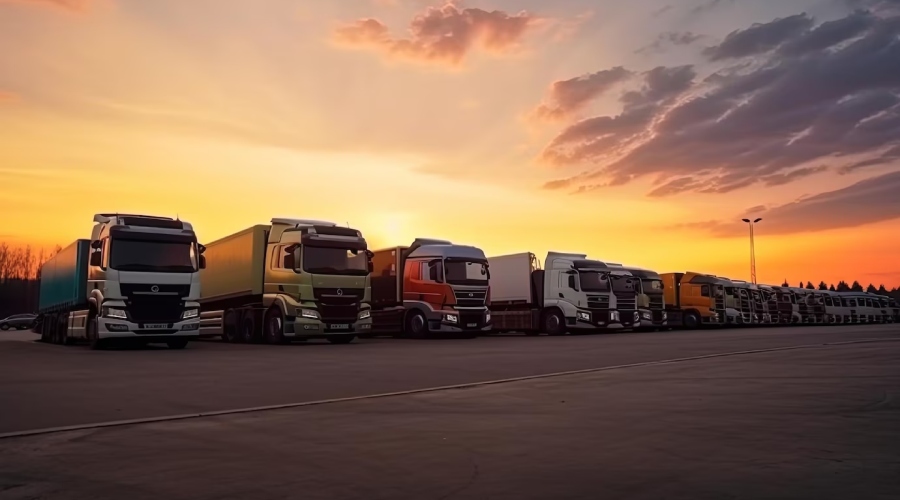The interconnected world of the 21st century is marked by an ever-increasing volume of goods moving between countries, making freight transport an essential aspect of global commerce. As products weave through vast supply chains, they might start their journey in one country, pass through several others for processing and finally reach consumers in a completely different part of the world.
With such complexity, one might assume that this flow is purely determined by economic factors like supply and demand. However, international politics plays a crucial role in shaping the patterns, costs, and efficiencies of freight transport. Especially in regions like the European Union (EU), where member states maintain strong political and economic ties.
Understanding this dynamic is vital for businesses, policymakers, and consumers alike. It provides insights into potential disruptions in supply chains, reveals vulnerabilities, and offers clues for strategic planning.
So in this article, we will delve into how international politics influences the movement of goods and commodities.
Trade agreements and freight movement
At the heart of international politics lies the negotiation of trade agreements, and these pacts largely dictate the terms of freight movement.
Trade agreements set the rules for how goods and services move between countries. They can determine tariff rates, set quotas, and establish standards for safety and quality. Within the EU, the Single Market has facilitated the free movement of goods, services, capital, and labor, making freight transport between member states relatively smooth.
However, when EU countries negotiate with non-EU countries, the resulting agreements can affect how goods move in and out of the bloc.
For instance, when the EU strikes a free trade agreement (FTA) with another country, goods from that country may enter the EU with reduced or zero tariffs, making them more competitive and possibly increasing their volume of imports. Conversely, any disagreement or tensions leading to trade restrictions can slow down freight movement, increase costs, and cause supply chain disruptions.
Sanctions and embargoes
Beyond trade agreements, nations sometimes resort to punitive measures like sanctions and embargoes, wielding them as political tools with direct implications for freight transport.
Sanctions are penalties imposed on countries due to various reasons, such as human rights abuses or nuclear proliferation. Embargoes, on the other hand, are a complete halt on certain goods or trade altogether.
When the EU, either unilaterally or as part of a larger international effort, imposes sanctions or embargoes on another country, freight transport to and from that country can be severely impacted.
For freight carriers, this means re-routing or even halting shipments, which can lead to increased costs. Businesses relying on imports from sanctioned countries might face shortages. That way compelling them to seek alternative suppliers.
Infrastructure investments and policies
Freight movement doesn’t just depend on the ‘what’ and ‘where’ but also on the ‘how’. Here, the role of infrastructure, backed by political decisions, comes into play.
Governments invest in infrastructure such as roads, ports, railways, and airports. Within the EU, member states coordinate and receive support for major infrastructure projects that can enhance connectivity and facilitate smoother freight movement.
And when a country prioritizes a particular mode of transport or route due to its foreign policy or domestic considerations, it can alter the dynamics of freight transport.
For instance, the EU’s Trans-European Transport Network (TEN-T) policy aims to boost the efficiency and sustainability of transport networks across the member states. Such policies, driven by political consensus, can open up newer, faster, or more economical routes for freight carriers.
Infrastructure decisions, thus, are not just economic but deeply political, shaping the contours of freight transport for years to come.
Environmental regulations
As the world grapples with climate change, environmental considerations have climbed the political agenda, influencing freight transport decisions.
The EU has been at the forefront of environmental regulations, setting ambitious targets to reduce carbon emissions. This has direct repercussions for the freight industry. Regulations might push for cleaner fuel alternatives, impose emission caps, or incentivize electric freight vehicles.
Freight carriers need to adapt to these regulations, which might mean investing in new technologies or changing transportation modes. For example, a shift from road transport to rail or waterways might be encouraged to reduce the carbon footprint.
For businesses, it’s imperative to:
- Stay updated with EU’s evolving environmental regulations
- Explore collaborations for shared transportation to reduce costs and emissions
- Invest in research and development for cleaner transport solutions
As the world seeks sustainable solutions, freight transport isn’t just about moving goods; it’s about moving them responsibly.
Check out our other related articles such as:
- How to Pack Agricultural Goods for International Shipping
- Specifics for the Transportation of Agricultural Goods
In conclusion, the intricate dance of international politics significantly affects the rhythms of freight transport.
So by understanding these dynamics, especially in influential regions like the EU, stakeholders can better navigate the challenges and opportunities that lie ahead.


